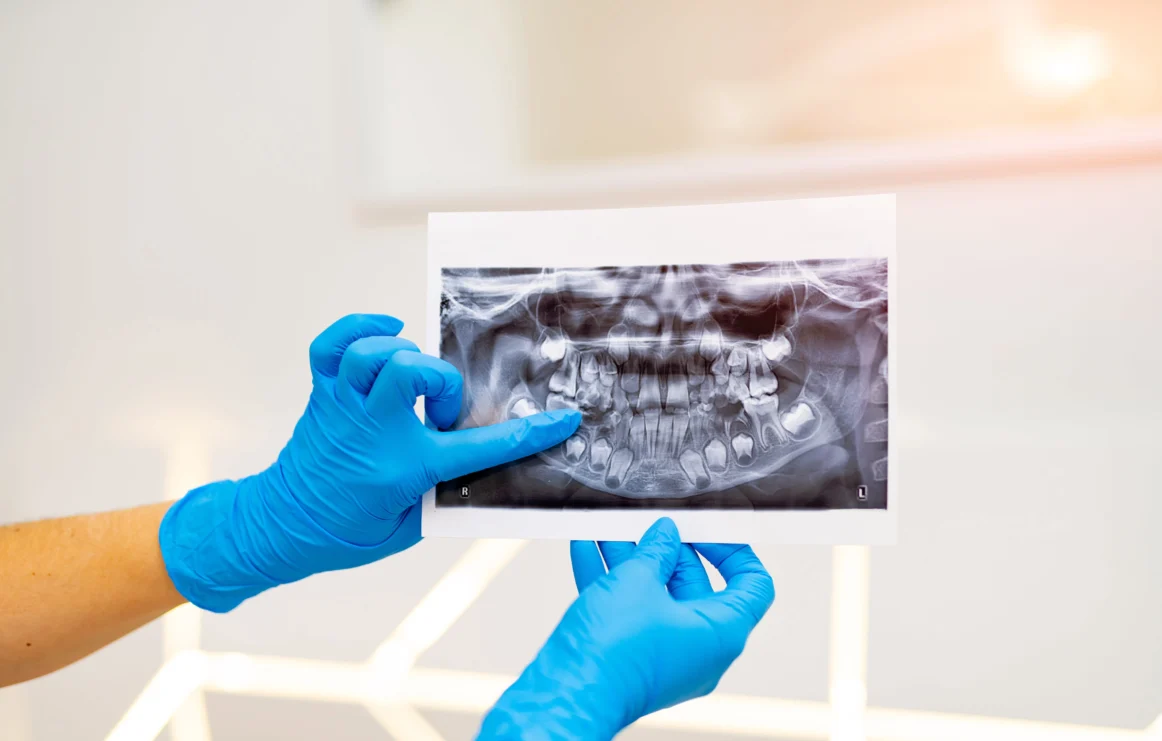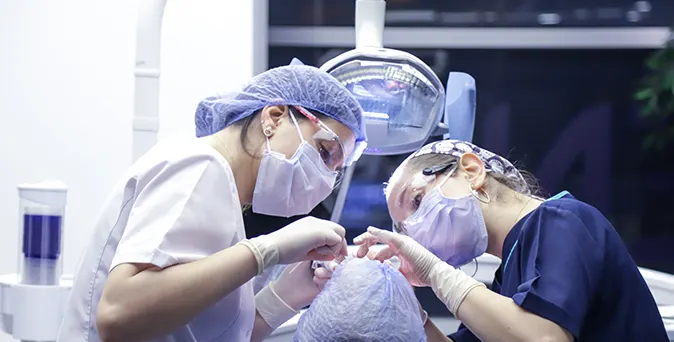Wisdom Tooth Guide: Recovery & Care
Wisdom tooth extraction is a common dental operation that many people undertake in their late teens or early adulthood. While the operation itself is quite simple, the healing process varies greatly from person to person. In this detailed guide, we will go over all you need to know about wisdom teeth recovery, from the operation to the details of the healing process.
Wisdom teeth, often called third molars, typically appear in the late teens or early twenties. However, due to the restricted space in the jaw, they frequently become impacted or fail to erupt properly, resulting in a variety of dental problems such as crowding, misalignment, and infection. In such circumstances, a dentist or oral surgeon may consider removing the wisdom teeth to avoid further issues and maintain oral health.
Wisdom Tooth Extraction
Oral surgeons typically remove impacted wisdom teeth using local anesthesia, IV sedation, or general anesthesia, depending on the case’s complexity and the patient’s preferences. While removing wisdom teeth, the oral surgeon makes an incision in the gums, exposes the underlying bone, extracts the teeth, and stitches the incision closed. In some cases, the surgeon sections the teeth into smaller pieces to facilitate removal.
Does wisdom teeth removal hurt? Although discomfort is typical during and after the treatment, anaesthesia is given to reduce it. Furthermore, pain medication is frequently provided to alleviate any discomfort during the recuperation process.
Wisdom Teeth Removal Aftermath
Days after surgery, it is usual to suffer soreness, and a swollen mouth and cheeks. Your dentist will provide you with specific post-operative advice to help you manage these symptoms successfully. Common advice after oral surgery includes taking prescribed pain medication as advised and avoiding intense activities that may interfere with the healing process.
Wisdom Teeth Removal Recovery
The duration of wisdom teeth recovery varies by individual and is determined by factors such as the number of teeth extracted, the intricacy of the surgery, and your overall health. Most people can expect to fully recover within a week to ten days of surgery. However, the early phases of recovery are critical, and you must strictly follow your dentist’s or oral surgeon’s recommendations to guarantee a smooth healing process.
Managing Symptoms after Surgery
You may have a variety of symptoms during your recuperation, such as swelling, bruising, soreness, and bleeding. To relieve pain and encourage recovery, consider the following suggestions:
- Use an ice pack on the cheeks for the first 24-48 hours after surgery to decrease swelling and bruising.
- Take pain medication as suggested by your dentist or oral surgeon to appropriately control discomfort.
- To minimize irritation at the surgery sites, eat a soft diet of cool, bland foods like yoghurt, mashed potatoes, and smoothies.
- Rinse your mouth gently with warm salt water several times per day to clean the extraction sites and aid healing along with reducing the bad taste in your mouth.
- Avoid smoking, using straws, and forceful rinsing since these can impair blood clot formation and increase the risk of dry sockets.
Returning to Normal Activities
Most patients, even the ones at the ages of 17, can return to their normal activities, including work or school, within a few days of wisdom teeth removal. However, it is critical to listen to your body and avoid overexertion in the early phases of recovery. Make sure to attend any follow-up appointments with your dentist or oral surgeon to track your progress and resolve any problems.
About DentSpa: Excellence in Advanced Dental Care
About DentSpa: Excellence in Advanced Dental Care
At DentSpa, we are proud to be a leader in advanced dental treatments, offering a wide range of services tailored to meet the needs of patients seeking excellence in oral health and aesthetics. Located in the vibrant city of Istanbul, DentSpa combines cutting-edge technology with a team of highly skilled specialists to deliver unparalleled care.
Our core services include cosmetic dentistry (such as Hollywood smile makeovers, veneers, and teeth whitening), orthodontics, dental implants, and digital smile design. we specialize in high-precision procedures aimed at transforming smiles and restoring confidence.
DentSpa is also a premier destination for dental tourism, attracting patients from around the world. With a focus on comfort and personalized care, we provide comprehensive support for international patients, including travel arrangements and accommodation assistance.
When you choose DentSpa, you’re choosing a clinic that prioritizes aesthetics, functionality, and long-lasting results, ensuring you leave with a smile that reflects your unique personality.
Conclusion
Wisdom tooth recovery is a long process that demands patience, meticulous care, and attention to detail. Following your dentist’s or oral surgeon’s recommendations, properly controlling symptoms, and keeping an eye out for indicators of complications will help you recover smoothly and successfully after wisdom teeth removal. Remember to prioritize rest, hydration, and gentle dental hygiene routines to aid healing and reduce discomfort. If you have any questions or concerns during your recuperation, please contact your dental care provider for assistance and support.
Frequently asked questions
How should I deal with discomfort and edema during the recovery process?
To control discomfort and swelling, apply cold packs to the cheeks, take recommended pain medication, eat a soft diet, and avoid strenuous activity that may worsen the surgery site.
What symptoms should I expect following wisdom tooth removal?
Swelling, bruising, discomfort, and bleeding are common symptoms of wisdom tooth removal. These symptoms are natural and can be treated with the right care and medicine.
How long should wisdom teeth bleed following extraction?
Typically, bleeding lasts for 24 to 48 hours after the surgery. Minor oozing may last for three to four days. If the bleeding continues or becomes excessive, contact your dentist.
















 70%
70% 

